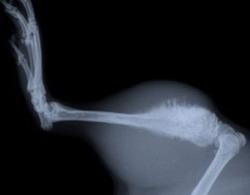With those simple, true words, Elizabeth Edwards transformed the campaign of her husband into a crusade.
John Edwards has talked about the "Two Americas" for over three years now, the wealthy one where he lives, the struggling one where most other people live. Those two words of Elizabeth brought it home, because they are so very true. Elizabeth Edwards is very lucky. She has the best possible doctors, and her husband has enough money so that she doesn’t need to worry about paying for her care, or bankrupting her children for her care, or cutting off her care to avoid financial ruin.
Most of us aren’t so lucky. Millions of Americans face bankruptcy with far-simpler diagnoses than she got this week, a metastasized breast cancer that has spread to her bones and lungs, inoperable, incurable but (for now) treatable. Americans pay more per capita for health care than any other people in the world, and get less for it.
Yet this is just one of several crushing problems our middle class faces. The sub-prime loan scandal is becoming a crisis. What Lou Dobbs calls "The War on the Middle Class" is real.
Because of this tragedy, John Edwards now has the chance to own the issue of the middle class the way Al Gore owns the environment. All he needs to do is
repeat his wife’s words from yesterday, then proceed to ask "why aren’t
the rest of us so lucky," talking about the problems faced by most
people whose government has abandoned them to a market that is killing
them, then describing what can be done about it.
People will now listen.
Elizabeth will draw those people to him. Her decision yesterday was
that she’s willing to play that role. It puts the whole "Two Americas"
thing in sharp relief, because the Edwards are indeed part of the
"other" America, the rich America, they admit it, and they’re willing
to do something about it. Conservatives will no longer be able to
automatically dismiss Edwards for his big house, they will no longer be
able to call him a hypocrite with any credibility, and so his message,
and his program, can get past their filter into the larger electorate.
This transforms the Democratic race, which partly due to Edwards’ early missteps was becoming a two-way battle between the Clinton AntiThesis and a vessel who talks
about a new thesis but can place no meat on those bones other than Rodney King’s "can’t we all get along." It’s now a three-way race, in which serious
issues will be faced.
That’s the way these generational elections roll. They’re marked by
surprises, by crusades, by events that strip away the veneers of
personal ambition and make it all about who we are as people, and what
we’re willing to transform ourselves into.
Out of all this a new Political Thesis will emerge, over the next
several years, a Thesis to which the vast majority of Americans will
attach themselves, which will blow away the Nixon Thesis of Conflict
into historical irrelevance.
And we’re all part of the process.











